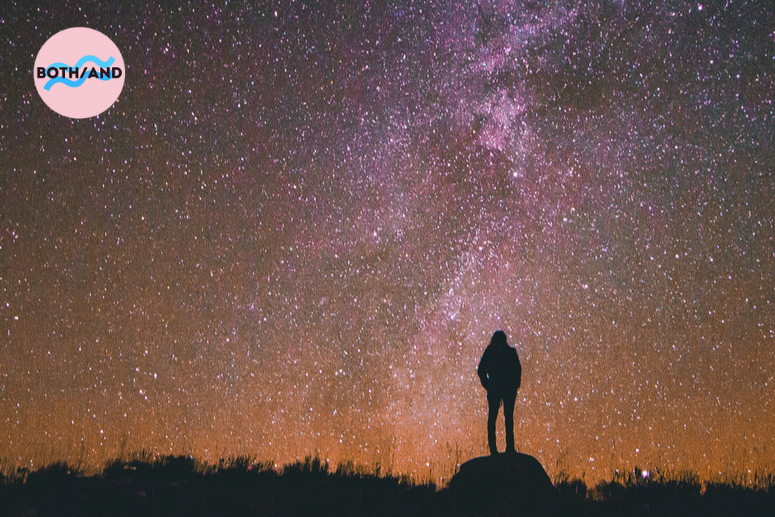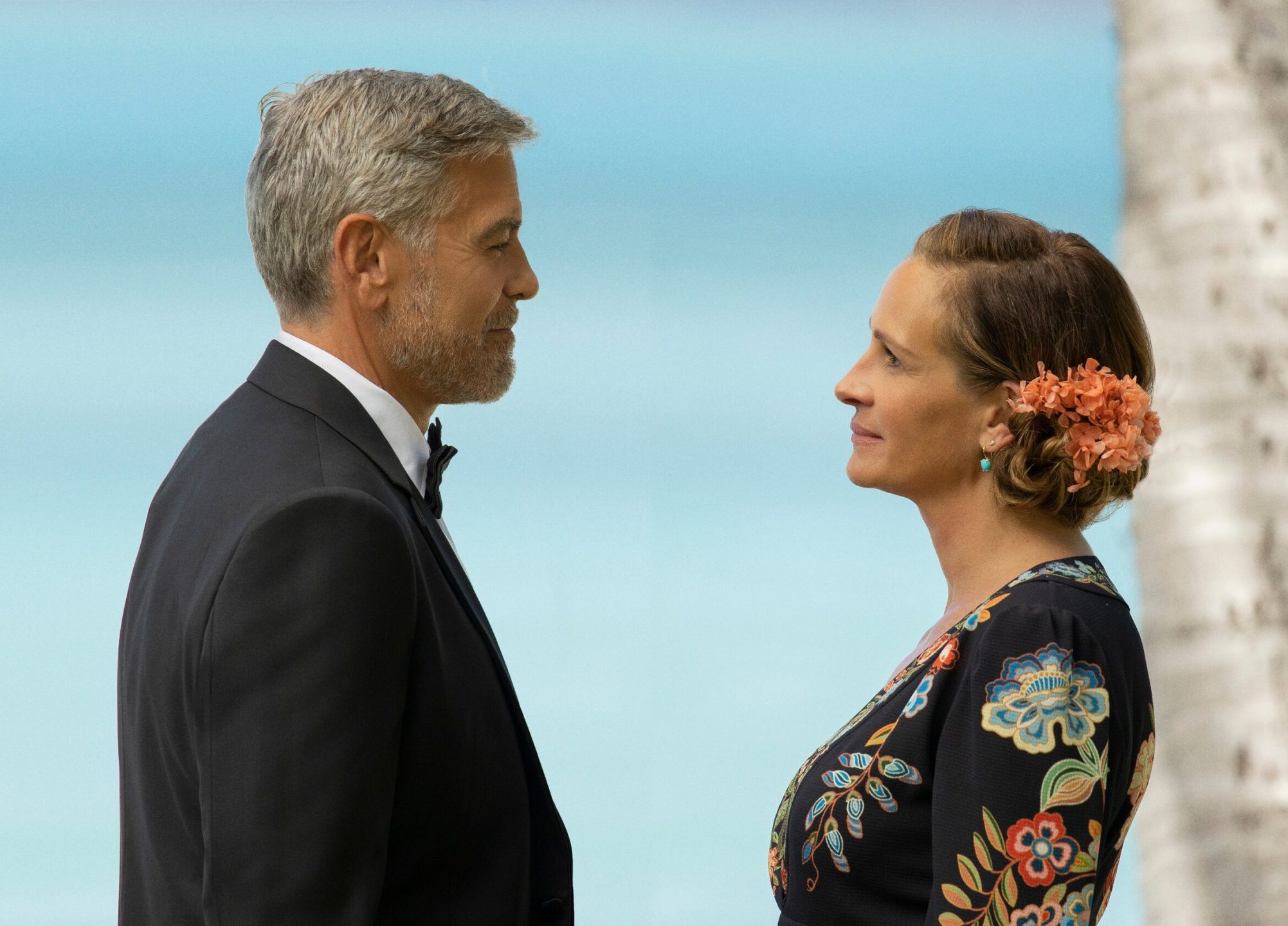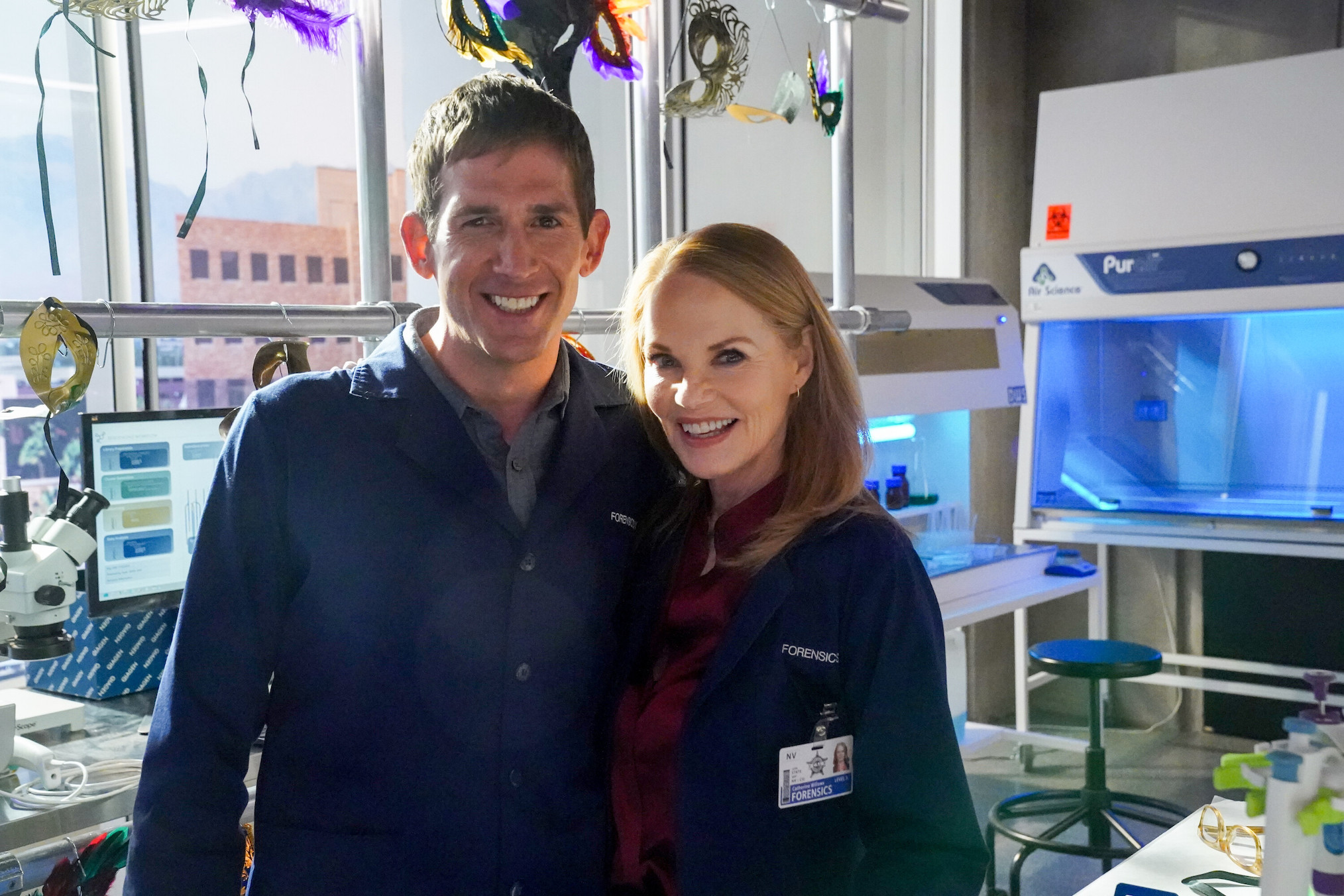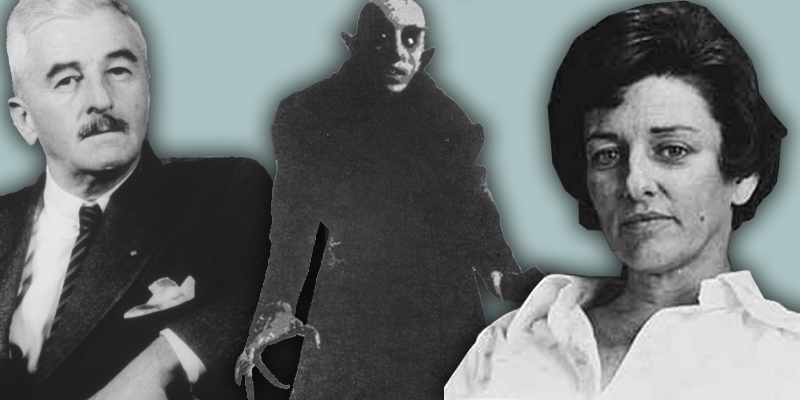One school morning in 2012, I woke up at home and alone. Everyone else was on holiday and I stayed behind by request. The class activity that day in high school was a debate about abortion. I was excited to participate – argument formulation was a strength of mine, and anything beat having homework.
Regrettably, my class schedule conflicted with another important event I was attending: my death.
I contacted my ride to school and told her that I couldn’t do it that day. I apologized for my absence, but left out the part where I planned to asphyxiate myself by noon. This wasn’t a suicide attempt with an subconscious desire to reach out for help and awareness. I had no intention of failing.
As I dragged my miserable self out of bed, a voice implored me to find help one last time. I wasn’t happy, but I struck a bargain: I would seek help one last time as a courtesy to that voice. I picked up the phone and called a suicide hotline, ready to ruin some underpaid counsellor’s morning. It rang for over a minute without a response – not even an answering machine. I put it down, thinking I had misdialed. I tried again and the same thing happened.
I had phoned a suicide hotline and nobody picked up.
When the realization hit home, I laughed – truly laughed – for the first time in weeks. The funniest point in one of the darkest periods of my life. The whole disaster put me in such good spirits that I postponed my death and skipped school for the day. I napped, and played video games, the same as any other teenaged boy would do with cherished spare time. I now had a mirthful secret: I was such a human catastrophe that I had failed my own death.
I postponed my death a few times during my teens, but this is the only story I tell to strangers. It’s the only one with any entertainment value. The other incidents aren’t funny.
I picked up the phone and called a suicide hotline, ready to ruin some underpaid counsellor’s morning.
There was the logical conclusion to my disjointed upbringing: failing at so many appointed tasks and then, failing at death.
With the privilege of hindsight and a Master’s in Psychology, I now know that fractured mental health and a critical shortage of support structures is ruinous. Tragically, I spent my formative adolescence in that whirlpool of ruinous emotions. I didn’t evade death through force-of-will or artful self-care. I avoided death because of small fortunes and a tiny spark of resistance.
May we never have to confront our killer in the mirror.
I was an auspicious creature, a thing of humble destiny that would bear my branch of the family tree forward. Chinese families often prefer boys for their value as income providers and bearers of the family name. A good education. A ‘respectable’ job (don’t tell them I did online sex work). Wife and kids. The responsibilities of Chinese masculinity mingle with the privileges. Boys are shaped into morally-upright and productive creatures who maintain their family’s face. Face. An untranslatable concept of social respectability, dignity, and public relations that governs many aspects of Chinese life.
What I’m saying is that I had a lot riding on my shoulders, and I don’t remember signing up for any of it.
Growing up, I was intimidated with stories of Chinese children failing to uphold their families’ standards. Young men who became video game-playing deadbeats; ‘good girls’ who partied their grades away at university. Chattering ladies and grandmothers endlessly compared their children to see who had the best one. Picture the javelin throw event, but the stakes are a family’s reputation and the children are the projectile. Who had the best grades? The best extracurricular record? The best musical performance? The children who left this crucible bore lasting imprints of the messages they heard. Depression, maladjusted personalities, and alcoholism. The coping mechanisms for success.
All of this was a preferable alternative to failure – becoming a failure was certainly the worst thing that could happen to a Chinese child. The ‘failures’ of my youth became cautionary tales passed to other children. Like the Titanic: doomed to serve as a warning to others. I sometimes think about a family friend whose son slipped so far that he failed a grade. I think he just needed social support. I hope he’s okay. I hope they all are.
I grew up under relentless pressure to be better than the person next to me, rather than befriend them. I bore the weight of being a Chinese boy remarkably well, considering that I was actually a girl.
May we reach our future without being twisted in someone else’s straitjacket.
By first grade, I was enrolled in visual art, dance and piano classes. My first piano teacher believed that a five-year old was too young to start. Unfortunately for her, my elders are Chinese. They knew enough stories of prodigal musicians to know that if you didn’t get your child against a grindstone early, they’d never be successful. I joined the millions of Chinese kids who were nudged (coerced) into extracurricular activities at their parents’ behest. My parents took pride in how liberal their parenting techniques were. They proudly told me that they consulted me, asking if I preferred piano or violin. They were under the impression that ‘asking’ me made it an informed decision. The fact that my five-year old brain wasn’t able to process the responsibility and expectations wasn’t considered. In adulthood, they asked why I hated it so much if I ‘chose it’. I had to explain the inability of children to give informed consent to them while sharing a pizza.
I bore the weight of being a Chinese boy remarkably well, considering that I was actually a girl.
Piano is just one of the many things I failed at during my childhood. The dance class melted away. My art class teacher politely ejected me from the class because I was too energetic for it. I wanted to draw fighting robots and she was interested in teaching still life and basic color theory. A thoughtful parent would have reconsidered their decision to enroll a child in extracurriculars that were beyond their child. These are Chinese parents, so I bore the mounting weight of familial disappointment. My upbringing was defined by my inadequacy. My failure to attain high grades. My extracurricular failures. My lack of piano achievements. My room was devoid of trophies like other children. Better children.
My body wasn’t good enough, either. The matriarchs got it into their heads that a seven-year old shouldn’t be so skinny. I was required to drink a loose fluid dotted with atolls of dusty powder—protein shakes— of a sickly vanilla flavor. Instead of turning me into the big, strong boy they wanted, I became more troublesome. I was a picky and slow eater, the way children who are forced to drink half-mixed protein shakes get picky. The way children who eat under risk of punishment eat slowly to appease their elders despite how little they’re enjoying the food.
Under threat of punishment, I learned to eat faster than anyone else at the table. When my family visits nowadays, they remark that I eat like ‘someone who has never seen food before,’ and implore me to slow down and enjoy it. I don’t even have the energy to explain the irony of this to them.
Every time I failed at an endeavor, I received a dressing-down about my shortcomings. If I was lucky, there was just an exasperated sigh. Still, the message was clear: I wasn’t good enough.
May we never be pulled away from the small things that bring us delight.
I tried to be a guy. I really did. By my teens, I was insisting to other guys that lesbian porn was the best, because it had twice the volume of women. In 10th grade, someone behind me was talking about a friend who was acting strangely. I shouted across that, “Well at least he’s not gay! It’s the gays that are the real problem!” That made me feel good, like a regular, gross teenager. They didn’t have to know that I grimaced in the mirror at home. Or that I hated compliments aimed at my broad shoulders and deepening voice. They needn’t know that I clung to my last plush toy until age seventeen – slightly ashamed of, but fiercely protective of my last ‘soft’ possession.
When I wasn’t a foreigner in my skin, I was reminded of it by the people around me. A stable feature of my childhood was being made aware of my differences. Casual remarks from classmates and passersby about my ethnicity. People asking if I ‘knew kung fu’ or was related to Jackie Chan. Casual, prejudicial ribbing from those around reminded me of my difference. I was being seen.
I once received a royal chewing-out from my grandmother for inviting two ‘ungrateful’ girls over to our house. They asked for a snack, which she considered a wildly inappropriate gesture. She encouraged me to stop befriending them. Not long after, I dared to ask a host for permission to watch TV while she tutored my cousin. Word reached my grandmother and I received an extraordinary dressing-down of my inadequacies as a human being. I never found out what I did wrong.
I was caught between Chinese and South African modes of being without an instruction manual. Each turn of the Earth made me more accustomed to the idea that I was a poor fit for my body and a poor fit for my life. Being alienated from society is familiar to most of us sometime or the other. Bodily alienation is a bit harder to grasp, even when you’re living in it. We all get ambushed by negative thoughts about our bodies, but the disconnection brought by dysphoria is truly alien. Even after a vibrant and successful gender transition, it hasn’t fully left me.
May we all graduate from our rental bodies to something that truly feels like home.
Every gender transition is different.
Mine started off exactly unsurprisingly: my mouth outran my brain. And before my brain had a chance to put a lid on it – to rationalize it away – I told my girlfriend Lucy that I might be trans. We blinked at each other in a feeble effort to process the gravity of what was just said. My mouth never paused to ask my brain for forgiveness. It still doesn’t, and I respect its enthusiasm. It was swift and resolute.
The year was 2020. There wasn’t much to do during lockdown other than make earth-shattering personal journeys and complain about life’s proceedings. My girlfriend ended her lifelong nail-biting habit. I realized that I’m transgender during lockdown. I’d say these were equally substantial events.
I was caught between Chinese and South African modes of being without an instruction manual.
I must have been insufferable during those early weeks, because the dam had broken, and all I could think or talk about was transition. I cooked up a schedule for transitioning: I would research for the next few months so that I could be extra sure about it. I would consider starting hormone replacement therapy in 2021 and let it work for three or four years. Then, I’d gradually make femininity a full-time thing. This was an orderly and steadily-paced transition that gave Lucy and I plenty of space to adjust.
Turns out, there’s no planning for reality. I was out of the closet to everyone in my social circle in two months (oops!). I started hormones in 2020, a year ahead of my plan. I was a full-time girl by the end of 2021. So, several years faster than expected. I was incorrigible. I studied every change to my physicality in joyful fascination. I wondered what the next change would be. How would I look once the body fat settled? How would my breasts turn out? Would people still like me? My internal monologue sounded like an adolescent girl – which in fairness, I sort of was.
I didn’t go into my transition blind to the trials that women face. In 2016, I was a crossdressing man in exploration, a tourist in femininity. I did so with the love and support of my friends. I was quickly exposed to the street harassment and nightclub groping that come with feminine presentation. When I started my transition, these experiences were a core part of the ruthless arithmetic of whether this was ‘worth it’. I was one of the few ‘men’ who had first-hand experience of some of the misogynies that women face. Was I willing to take up those experiences and shed the safety of manhood?
May we all be gifted with the determination to craft our best selves.
I noticed it quickly: the second glances and lingering looks. My anxiety said that people were ogling the broad-shouldered ogre man-lady who will never be a girl. My anxiety is kind of a dick.
With time, those negative thoughts were dispelled for the acrid illusion they were. Eventually, ‘positive’ confirmations of my femininity appeared. Drivers were much more polite to me at pedestrian crossings. I received offers for assistance with my groceries. Men were much more amenable to making chit-chat with me. People saw a woman and acted accordingly.
Success.
My internal monologue sounded like an adolescent girl – which in fairness, I sort of was.
Happiness bloomed in me. Society now saw the person I wanted them to see. Still, I mourned the men who society largely treats as unworthy of assistance or attention. I don’t see how things would be worse if we offered to help men with their groceries a bit.
My confidence escalated, but so did the attention. My girlfriend steadfastly told me that I wasn’t just any woman, but a beautiful woman. I entered the pandemic as a lanky young man with a penchant for baggy clothes, and escaped as a stately young woman. The physical traits that I found ill-fitting for manhood were now prized: thinness, long limbs, soft facial features. Men asked for my number. There was an occasional whistle or comment as I walked past (ugh).
I was being read as a woman. As many trans people would say, I ‘passed’. This wasn’t a test like my childhood weight or piano recitals. It was self-imposed. I signed up for it, and I succeeded.
From now on, this is how it would be.
This new gaze of society – one reserved for beautiful Asian women – unsettled me. I didn’t consider myself beautiful. My anxiety and wounded self-esteem always assured me otherwise. However, others thought so. Strangers are inexplicably more polite to me despite no change in my behavior. Every time I’ve been asked on a date was post-transition. The unwanted compliments are a torrent. Being so vividly seen took me back to my childhood, but the jeering had been replaced with hungry second glances.
There’s a word for that. Trans people talk about gender euphoria – the unbridled joy of having our gender affirmed. But, this was gender ewphoria: the disconcerting half-happiness of one’s gender being affirmed in a harmful way. A trans woman encounters street harassment for the first time, but feels her femininity affirmed despite it being sexual harassment. A trans man is invited to participate in casually misogynistic conversation because he’s now one of the boys. Gender ewphoria.
‘Passing’ has its consequences. Even success has shortcomings, but it’s always worth it. That’s what makes it success.
May we please be affirmed for our beautiful selves in ways that aren’t gross.
Starting antidepressants didn’t cure my paired anxiety and depression. They took on the burden so that I could better uphold my daily life. Gender transition was the same. It freed up mental capacity previously occupied by the need to endure my incompatible body. With that alignment, I could focus my resilience on other endeavors.
Being so vividly seen took me back to my childhood.
Masculinity taught me much, not all of it good. It taught me hardness and suppression. I politely abided and suppressed my tears, my interest in men, and my femininity, to name a few. By the time people stopped telling me to bury myself, the lessons were entrenched and I perpetuated them myself. There was a lot of digging to do. With my newfound energy, I confronted parts of myself that I’d driven into the ground. One by one, I decided their fate.
My masculine upbringing taught me independence, assertiveness, and emotional resilience. A keeper, but I sanded down the hardest edges. My insular, nerdy-boy childhood formed a love for military history, scale model making and video games. Keep! But, let’s augment them with the feminine interests that I was always too afraid to try: cultivating my wardrobe and collecting plush toys.
But the eating disorder? That had to go.
It was anchored in my childhood diets. My family disciplined me for being a ‘fussy’ and slow eater. As a child, I was fed protein shakes because my body was too weedy. By my teens, this overbearing watch was replaced by apathy – I could eat whatever I want, whenever I wanted and nobody cared anymore. Great idea, right?
My understanding of what constituted healthy eating has always been lacking. My childhood primed me for an unhealthy relationship with food. However, that didn’t spawn an eating disorder. I needed motivation. One final push. It came in 2015, during my crossdressing cis-man era. My tourism in femininity showed me the joy of seeing my feminine form (euphoria), but I noticed a few squishy parts. Areas that could be a little ‘leaner’, or where my clothes could fit a little ‘better’.
One final push.
I didn’t have the language to make sense of dysphoria, euphoria, or men’s eating disorders in 2015. I just let my mind dictate this new path – just vibin’, if you will. I lost an alarming amount of weight by starving myself, and kept it off for over a year by force of will. I accepted a constant state of exhaustion and daily headaches as the price for my goal body—a feminine body. It never occurred to me to ask why a ‘cisgender man’ would crave a feminine body. I wasn’t eating enough to form such big thoughts.
This downward spiral only stopped when I was confronted with the reality of my situation: I was at a dangerously low weight and I wasn’t looking more feminine. I was just gaunt. Pallid in the face, and struggling to focus in my lectures. The pendulum swung in the opposite direction and I binge-ate to regain the weight. I declared this episode over when my weight returned. I was under the mistaken impression that eating disorders were just about weight.
My transition was marked by near misses and short relapses. I nearly relapsed when I dug up my old feminine wardrobe to see how the clothes fit. They didn’t. I did the smart thing and thrifted them away before I let Size S become a ‘body goal’. I relapsed when I visited Lucy’s family home and was surrounded by women who had complex (read: terrible) relationships with weight, and also unable to maintain my eating schedule. At work, someone remarked on my thinness and I later watched her scrape the chocolate icing from her cupcake before starting on it. I ate briskly and left, before those thoughts came back.
I was at a dangerously low weight and I wasn’t looking more feminine.
When my mother saw the new me for the first time, she said that I was too skinny and I had to eat more. There it is; ewphoria. No tradition in a Chinese family is more hallowed than making inappropriate remarks about a daughter’s weight. I knew at that moment that she saw a daughter in me. Still, Lucy had to talk me out of cutting down on my next meals.
Wicking away the pain of my past in careful, measured movements. Small, incremental successes chipped by the occasional failure. This is the trajectory of my eating disorder recovery.
May we all liberate ourselves from the pain that marks our body.
Most people who want to kill themselves don’t actually want to die. Dying is anathema to our body’s every interest. What we actually want is a quiet end to the suffering. Unfortunately, we know that such a thing can never pass, so dying becomes an adequate facsimile.
I was a frightened, lonely boy. I had finally been burdened with too much trauma – bodily, psychologically, socially. The scripts of inadequacy and manhood gave me none of the agency to cope with it. I didn’t want to die. I just wanted to go away. I’ll never know what pressed me to each new day during those years, but I’m glad it happened.
In 2015, I escaped my childhood to a university hundreds of miles away. That university experience shaped me into the woman I am today. Even better than shaping me into this woman, it gave me the courage to pick the threads of my past apart in search of that lonely child. In the recesses of inadequacy and trauma-memory, I found the definitive reward for the life I built. I gave the suicidally depressed boy-I-was what he wanted most: a conclusion.
By transitioning, I relegated him to the past tense. I released his life into the realm of memory. I ended his pain.
I didn’t have to take his life to accomplish it.
This is joyful beyond words. I am one of the few people who was able to put their suicidal self to rest without the horror of taking a life. That is prettier than living in a body I can call home and striding the world as my truest self.
I am proud of that shaken and bewildered boy for enduring his world while still trying his best.
I am proud of him for giving up his life piece-by-piece to shield a woman he didn’t know.
May he rest peacefully in the knowledge that it was worth it.
I am one of the few people who was able to put their suicidal self to rest without the horror of taking a life.
I empathize with trans people who want to relegate their past selves to oblivion. But this is my story and I’m obliged to make room for the sacrifices my past self made. I remember him for the courageous child that he was, even if he never believed it. He bore guilt for every test he supposedly failed, and he was nearly overcome. Only with the freedom of adulthood and recovery did I learn that sometimes, the bar for success is set at survival. It’s the only bar that really mattered to my younger self, and he upheld it.
No undertaking can affirm my agency as much as undergoing an adolescence of my choosing. Nothing can match the bliss of awarding my past self the accolades and rest he earned.
This delight – the embodiment of my euphoria deserved a name.
Her name is Summer.
I named her for the warmth roiling in her heart, the prosperity in her smile, and the unbound hope in every step she takes.
May we all be privileged enough to have a name that fits perfectly.


























































